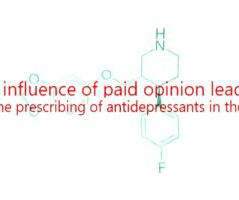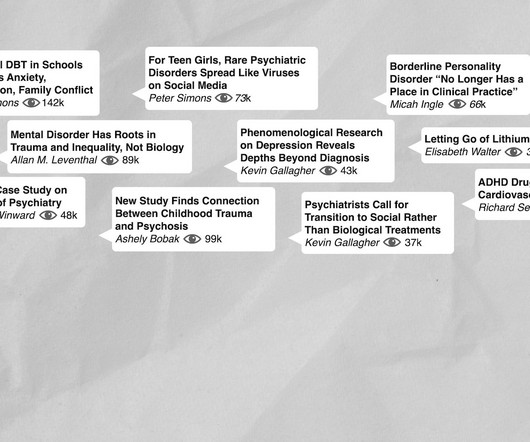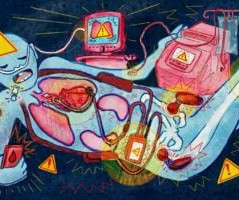Winding Back the Clock: What If the STAR*D Investigators Had Told the Truth?
Mad in America
JANUARY 3, 2024
F or the longest time, the field of psychiatry remained silent about the STAR*D scandal. Ed Pigott and colleagues first published a deconstruction of the study in 2010 , detailing the protocol violations that the STAR*D investigators had employed to inflate the cumulative remission rate, and even after Pigott and collaborators published a RIAT reanalysis of the study findings this past July, there was silence from psychiatry regarding this scandal.


















Let's personalize your content